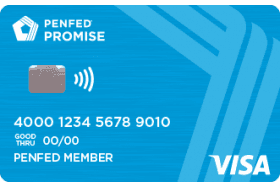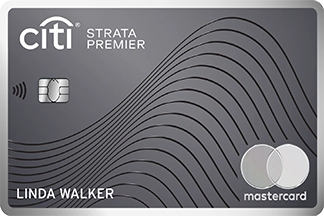- myFICO® Forums
- FICO Scoring and Other Credit Topics
- Understanding FICO® Scoring
- Breaking a scoring plateau?
- Subscribe to RSS Feed
- Mark Topic as New
- Mark Topic as Read
- Float this Topic for Current User
- Bookmark
- Subscribe
- Mute
- Printer Friendly Page
Breaking a scoring plateau?
Is your credit card giving you the perks you want?
Browse credit cards from a variety of issuers to see if there's a better card for you.
- Mark as New
- Bookmark
- Subscribe
- Mute
- Subscribe to RSS Feed
- Permalink
- Report Inappropriate Content
Breaking a scoring plateau?
Greetings to everyone from a long-time lurker and first-time poster.
I have been trying to rebuild my credit, and while I have met with some success, I seem to have hit a plateau in raising my score. I am looking for some advice as to what I am doing wrong (or not doing) in order to push things higher. For about the last year, I have been checking scores monthly and credit reports quarterly, and my scores fluctuate a bit from month to month, but the average of my scores stay in the 750-780 range on any given month. I would really love to push these over 800.
I have 5 open credit cards on my report ($30,000, $10,500, $7,400, $5,000, and $700), though I only use 2 with any regularity (the 2 largest lines). One card ($5000) is a store card; the rest are regular credit cards. I pay statement balance in full each month. I tend to show a utilization average of between 5 to 10% on reports. I have found to my surprise that the lower my utilization is, the lower my score tends to be and vice versa.
There is one open auto loan and one student loan on my report. I also currently have a mortgage (but want to purchase another home soon hence my sensitivity to the scoring). The number of inquiries on my reports range from 1 to 3. My current AAoA is just under 6 years with oldest open accounts coming up on 10 years.
There are no public records and I haven't had any late payments since 2012 though they do continue to show on my report since the 7 years haven't passed yet.
I thought it was the old late payments holding me back but I have met several other people who have confided in me they have late payments and 800+ scores, so I feel like there's something else I'm doing that's keeping my scores from moving again.
Any advice the experts out there can share is appreciated.
- Mark as New
- Bookmark
- Subscribe
- Mute
- Subscribe to RSS Feed
- Permalink
- Report Inappropriate Content
Re: Breaking a scoring plateau?
@iced wrote:Greetings to everyone from a long-time lurker and first-time poster.
I have been trying to rebuild my credit, and while I have met with some success, I seem to have hit a plateau in raising my score. I am looking for some advice as to what I am doing wrong (or not doing) in order to push things higher. For about the last year, I have been checking scores monthly and credit reports quarterly, and my scores fluctuate a bit from month to month, but the average of my scores stay in the 750-780 range on any given month. I would really love to push these over 800.
I have 5 open credit cards on my report ($30,000, $10,500, $7,400, $5,000, and $700), though I only use 2 with any regularity (the 2 largest lines). One card ($5000) is a store card; the rest are regular credit cards. I pay statement balance in full each month. I tend to show a utilization average of between 5 to 10% on reports. I have found to my surprise that the lower my utilization is, the lower my score tends to be and vice versa.
There is one open auto loan and one student loan on my report. I also currently have a mortgage (but want to purchase another home soon hence my sensitivity to the scoring). The number of inquiries on my reports range from 1 to 3. My current AAoA is just under 6 years with oldest open accounts coming up on 10 years.
There are no public records and I haven't had any late payments since 2012 though they do continue to show on my report since the 7 years haven't passed yet.
I thought it was the old late payments holding me back but I have met several other people who have confided in me they have late payments and 800+ scores, so I feel like there's something else I'm doing that's keeping my scores from moving again.
Any advice the experts out there can share is appreciated.
What are the original loan amounts and the present balances?
I seriously doubt one can get 800+ scores with late payments btw.































Total revolving limits 568220 (504020 reporting) FICO 8: EQ 689 TU 691 EX 682
- Mark as New
- Bookmark
- Subscribe
- Mute
- Subscribe to RSS Feed
- Permalink
- Report Inappropriate Content
Re: Breaking a scoring plateau?






| Total CL: $321.7k | UTL: 2% | AAoA: 7.0yrs | Baddies: 0 | Other: Lease, Loan, *No Mortgage, All Inq's from Jun '20 Car Shopping |
BoA-55k | NFCU-45k | AMEX-42k | DISC-40.6k | PENFED-38.4k | LOWES-35k | ALLIANT-25k | CITI-15.7k | BARCLAYS-15k | CHASE-10k










- Mark as New
- Bookmark
- Subscribe
- Mute
- Subscribe to RSS Feed
- Permalink
- Report Inappropriate Content
Re: Breaking a scoring plateau?
The open loan balances are:
Student - Original balance was ~$35,000, now at ~$27,000
Car - New loan (June 2016), ~$31,000, so still at same
House - Original balance was ~$157,000, now at ~$138,000
I'm also worried that the late payments are imposing a lower ceiling on my score, though I also keep reading that they're supposed to hurt less over time.
- Mark as New
- Bookmark
- Subscribe
- Mute
- Subscribe to RSS Feed
- Permalink
- Report Inappropriate Content
Re: Breaking a scoring plateau?
@iced wrote:The open loan balances are:
Student - Original balance was ~$35,000, now at ~$27,000
Car - New loan (June 2016), ~$31,000, so still at same
House - Original balance was ~$157,000, now at ~$138,000
I'm also worried that the late payments are imposing a lower ceiling on my score, though I also keep reading that they're supposed to hurt less over time.
They effectively do hurt less over time, but for example the highest we've anecdotally seen on a FICO 8 score was a 785 IIRC with a 90 day late about to fall off. That said I've been sitting at virtually the same score on every FICO algorithm I have access to for the past two years if I discount the installment utilization fun... and probably will for the next 1.5 years as well.
Different algorithms score things differently, and I'd recommend taking anything you have "confided" in you with a grain of salt as even these days it's still statistically less likely they're looking at a FICO score, and even less likely they're using the same ones you are as a benchmark even if they are.
Lates and your installment utilization when talking FICO 8 isn't pretty but short of dropping a boatload of cash there's nothing you can do the optimize that second bit (same as me incidently, I would be >740 on EX and maybe even TU/EQ too without my darned mortgage lording over installment utilization metric); fortunately when talking mortgage 2/3 of the trifecta of scores used ignore installment utilization altogether.
See if you can GW off the lates, and it'd be worth taking a peak at your mortgage scores if you haven't already as you might actually be higher on those from what you describe than the FICO 8 benchmark most people have.





















- Mark as New
- Bookmark
- Subscribe
- Mute
- Subscribe to RSS Feed
- Permalink
- Report Inappropriate Content
Re: Breaking a scoring plateau?
Revelate,
You bring up an interesting angle with the loans. I always had believed that carrying a mix of credit and installment loans was essential to having a high score. I also did not realize the balances factored in my utilization. If I were to apply for a new mortgage in a year, because of the lag between a loan closing (selling house and paying off mortgage) and it showing up on a credit report, would the ~$138,000 utilization work against me when trying to get the new mortgage?
I could pay off the student loan, but it would tap out the emergency fund and I feel that the benefits to doing so don't justify the costs at present. However, I have been thinking about partially paying it down (making an additional $10,000 payment) just because it's currently my highest interest loan and I would prefer it be gone sooner rather than later. Would this reduction actually boost my score, and if so are we talking somewhere closer to 5 points or 30?
- Mark as New
- Bookmark
- Subscribe
- Mute
- Subscribe to RSS Feed
- Permalink
- Report Inappropriate Content
Re: Breaking a scoring plateau?
@iced wrote:Revelate,
You bring up an interesting angle with the loans. I always had believed that carrying a mix of credit and installment loans was essential to having a high score. I also did not realize the balances factored in my utilization. If I were to apply for a new mortgage in a year, because of the lag between a loan closing (selling house and paying off mortgage) and it showing up on a credit report, would the ~$138,000 utilization work against me when trying to get the new mortgage?
I could pay off the student loan, but it would tap out the emergency fund and I feel that the benefits to doing so don't justify the costs at present. However, I have been thinking about partially paying it down (making an additional $10,000 payment) just because it's currently my highest interest loan and I would prefer it be gone sooner rather than later. Would this reduction actually boost my score, and if so are we talking somewhere closer to 5 points or 30?
It's all aggregate (and only on FICO 9, FICO 8, and FICO 98), so for me I'd have to get down to ~80% (might be 70%, think we're close to isolating the higher breakpoint whereas we know the low breakpoint at 10%, or 9% depending on FICO's rounding) of a 258K mortgage on my report since my other baby loan doesn't contribute much to the calculation.
AKA I'd have to kick 50K and change to the loan in order to materially effect a change. In your case it's unlikely to make a difference at all in paying down the debt signifncantly, and you are MUCH better off keeping that cash in the bank from a mortgage perspective.
Mortgages are underwritten on a fixed set of FICO scores, and the Equifax and Transunion scores there utterly ignore installment loan balances so I wouldn't worry about it. Basically if you need clearance on a DTI calc, then you pay off a loan, but if you don't, let it ride.





















- Mark as New
- Bookmark
- Subscribe
- Mute
- Subscribe to RSS Feed
- Permalink
- Report Inappropriate Content
Re: Breaking a scoring plateau?
@iced wrote:The open loan balances are:
Student - Original balance was ~$35,000, now at ~$27,000
Car - New loan (June 2016), ~$31,000, so still at same
House - Original balance was ~$157,000, now at ~$138,000
I'm also worried that the late payments are imposing a lower ceiling on my score, though I also keep reading that they're supposed to hurt less over time.
Your installment loan utilization is quite high. That is definitely depressing your scores in a major way.
Your focus should be paying those down.































Total revolving limits 568220 (504020 reporting) FICO 8: EQ 689 TU 691 EX 682
- Mark as New
- Bookmark
- Subscribe
- Mute
- Subscribe to RSS Feed
- Permalink
- Report Inappropriate Content
Re: Breaking a scoring plateau?
@iced wrote:Revelate,
You bring up an interesting angle with the loans. I always had believed that carrying a mix of credit and installment loans was essential to having a high score. I also did not realize the balances factored in my utilization. If I were to apply for a new mortgage in a year, because of the lag between a loan closing (selling house and paying off mortgage) and it showing up on a credit report, would the ~$138,000 utilization work against me when trying to get the new mortgage?
I could pay off the student loan, but it would tap out the emergency fund and I feel that the benefits to doing so don't justify the costs at present. However, I have been thinking about partially paying it down (making an additional $10,000 payment) just because it's currently my highest interest loan and I would prefer it be gone sooner rather than later. Would this reduction actually boost my score, and if so are we talking somewhere closer to 5 points or 30?
With 88% installment loan utilization, your scores aren't going anywhere. A $10k reduction in your debt, taking you down to 83.5% utilization, isn't going to cut it.
So if I were you I'd either stop fretting about my credit scores, or I'd start getting serious about getting the installment balances seriously reduced.































Total revolving limits 568220 (504020 reporting) FICO 8: EQ 689 TU 691 EX 682
- Mark as New
- Bookmark
- Subscribe
- Mute
- Subscribe to RSS Feed
- Permalink
- Report Inappropriate Content
Re: Breaking a scoring plateau?
Amex Blue Business Plus